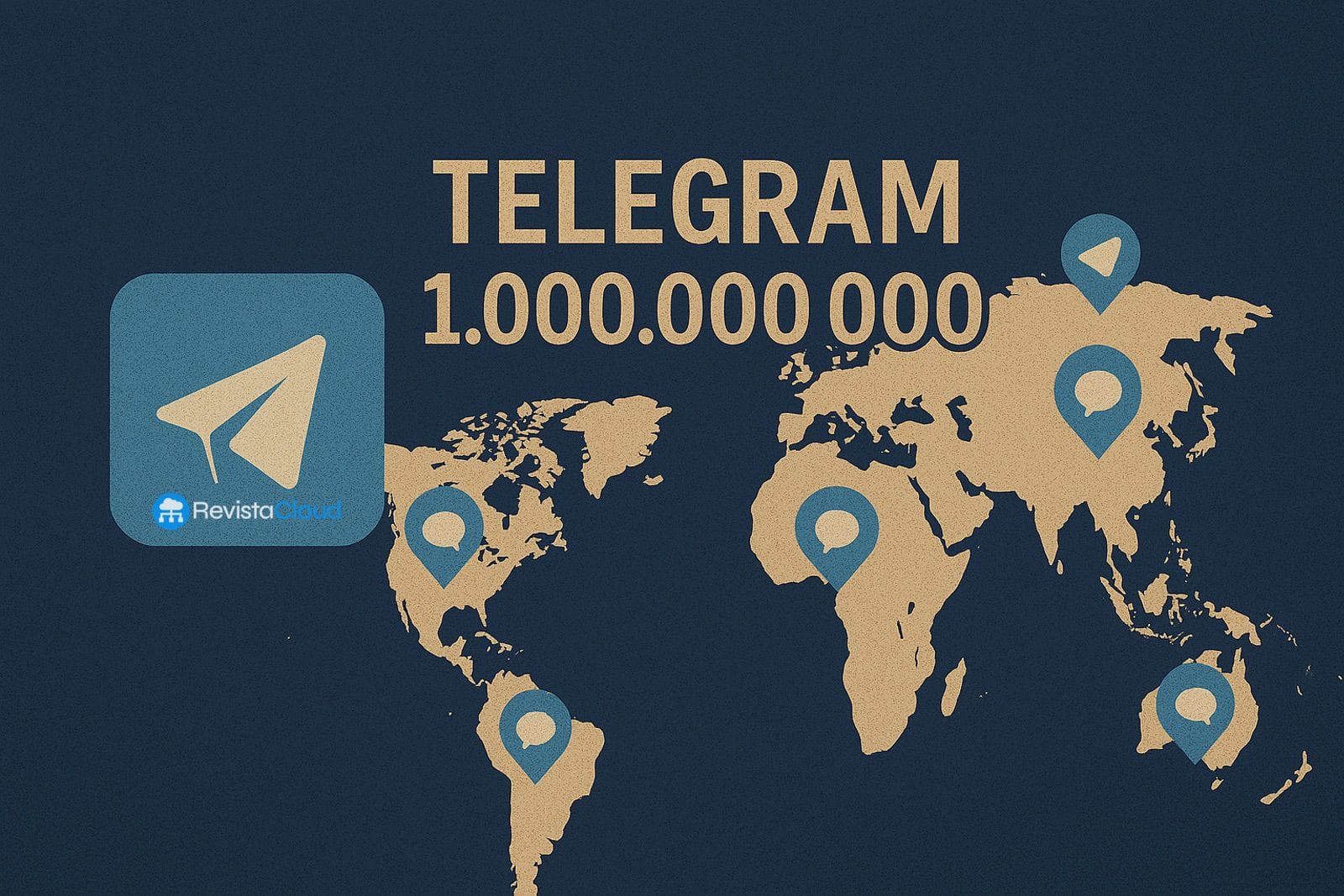Sure, here’s the text translated into American English:
Telegram has reached a new milestone in its trajectory by surpassing 1 billion monthly active users, solidifying its position as one of the most influential messaging apps on the planet. The announcement was made by its founder, Pavel Durov, through his official channel on the platform, confirming the unstoppable rise of an app that was born with a clear purpose: to protect privacy in an increasingly monitored digital environment.
Growth Reflecting User Evolution
The announcement, made in March 2025, also reveals data about user behavior. On average, each person accesses Telegram about 21 times a day and spends nearly 41 minutes inside the app. These figures demonstrate a deep connection between the tool and its global community.
Telegram has not only grown in users but also in revenue. In 2024, the company generated profits worth $547 million, solidifying its business model without solely relying on invasive advertising or data collection. Part of that success is attributed to the launch of Telegram Premium, which brings in revenue without compromising the key features that have made the platform famous.
From Digital Dissident to Global Leader
Pavel Durov’s journey, also known as the “Russian Zuckerberg,” has been anything but conventional. He co-founded Telegram in 2013 with his brother Nikolai after leaving Russia due to pressure from the Kremlin while he was leading the social network VKontakte (VK). His refusal to hand over user data and collaborate with the government made him a symbol of the fight for digital freedom.
Since then, Telegram has evolved as an independent platform, based in Dubai and legally registered in the British Virgin Islands. This structure ensures its autonomy from governments and large corporations, one of the key banners that Durov champions.
A Unique Proposition in a Saturated Market
In an ecosystem dominated by WhatsApp and other messaging apps, Telegram has managed to set itself apart thanks to its focus on security, flexibility, and constant innovation. Its encryption system, the ability to send files without size limits, secret chats, numerous channels, and customizable bots are just a few of the tools that have made it a favorite among millions of users.
Moreover, the app is frequently updated, adding features requested by the community, which reinforces its reputation as an evolving environment open to feedback.
Legal Challenges and Tensions with Governments
However, its commitment to privacy has generated friction with various governments. Telegram has been blocked, albeit temporarily, in countries like Russia, Iran, China, Brazil, and more recently, Spain. In the latter case, the National Court ordered its blocking following a complaint regarding the dissemination of copyrighted content.
Pavel Durov has also made headlines for legal reasons. In 2024, he was arrested in France in connection with an investigation related to the use of the platform for criminal activities, though he was subsequently released and allowed to return to Dubai.
What’s Next: Decentralization, Blockchain, and Expansion
Durov has indicated several times that Telegram is still in the early phases of its potential. Among future plans, there is talk of greater integration with decentralized technologies like blockchain, and the development of new features that expand the app’s ecosystem beyond messaging.
Projects like TON, the blockchain network initially driven by Telegram, and its future applications could mark the next chapter in the platform’s evolution. Although regulatory challenges have not been minor, the company’s interest in this area remains alive.
A Model that Challenges the Status Quo
At a time when the concentration of power in the tech sector raises concerns, Telegram offers an alternative approach. In contrast to business models centered around the mass exploitation of personal data, Durov proposes a robust platform, with user control and free from external interference.
“We are just getting started,” he recently said, suggesting that the future of Telegram will be as ambitious as it is disruptive. What began as a resistance project has transformed into a central player in the global digital landscape. The figure of 1 billion users is not just a number: it is confirmation that millions of people are seeking a different alternative. And for now, they have found it in Telegram.
Source: Messenger News

